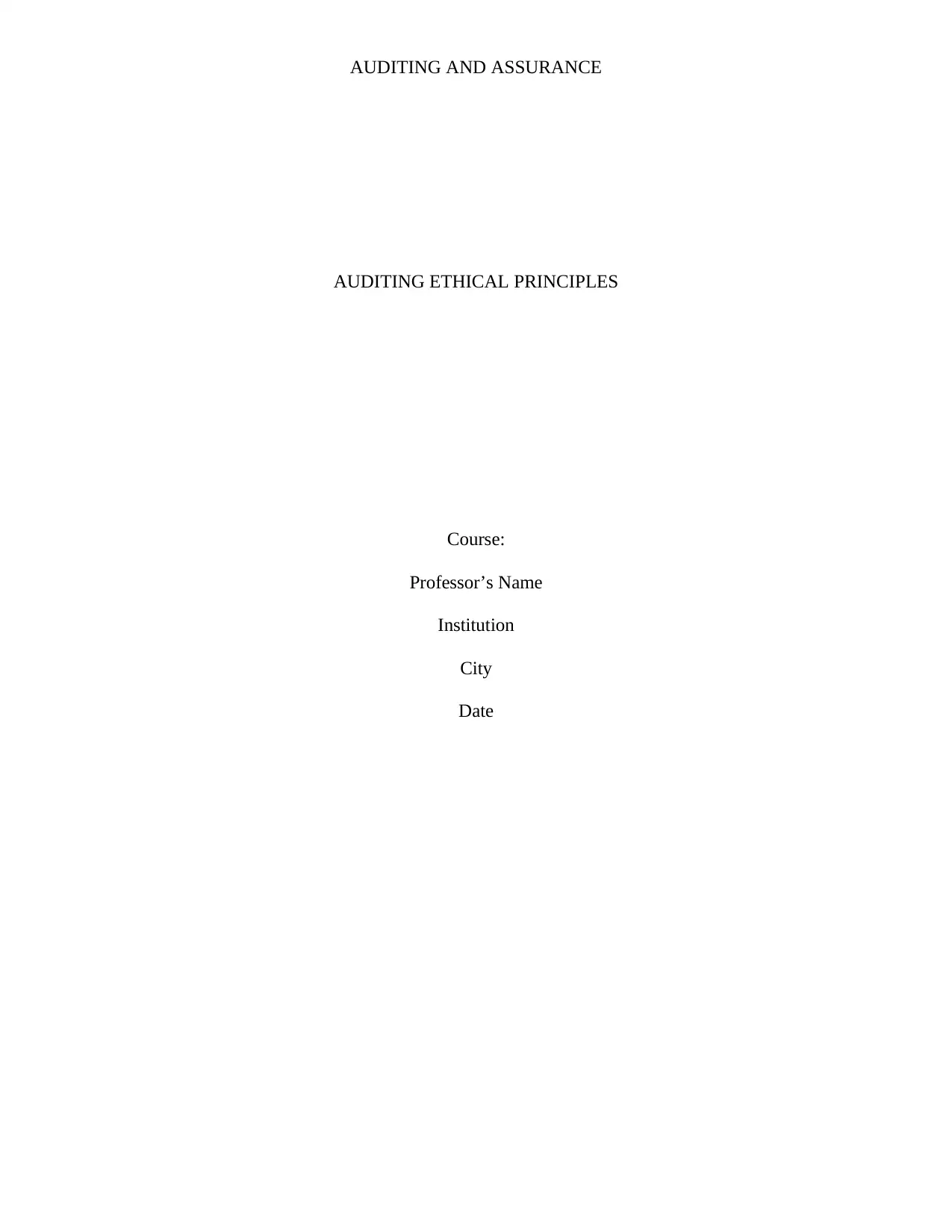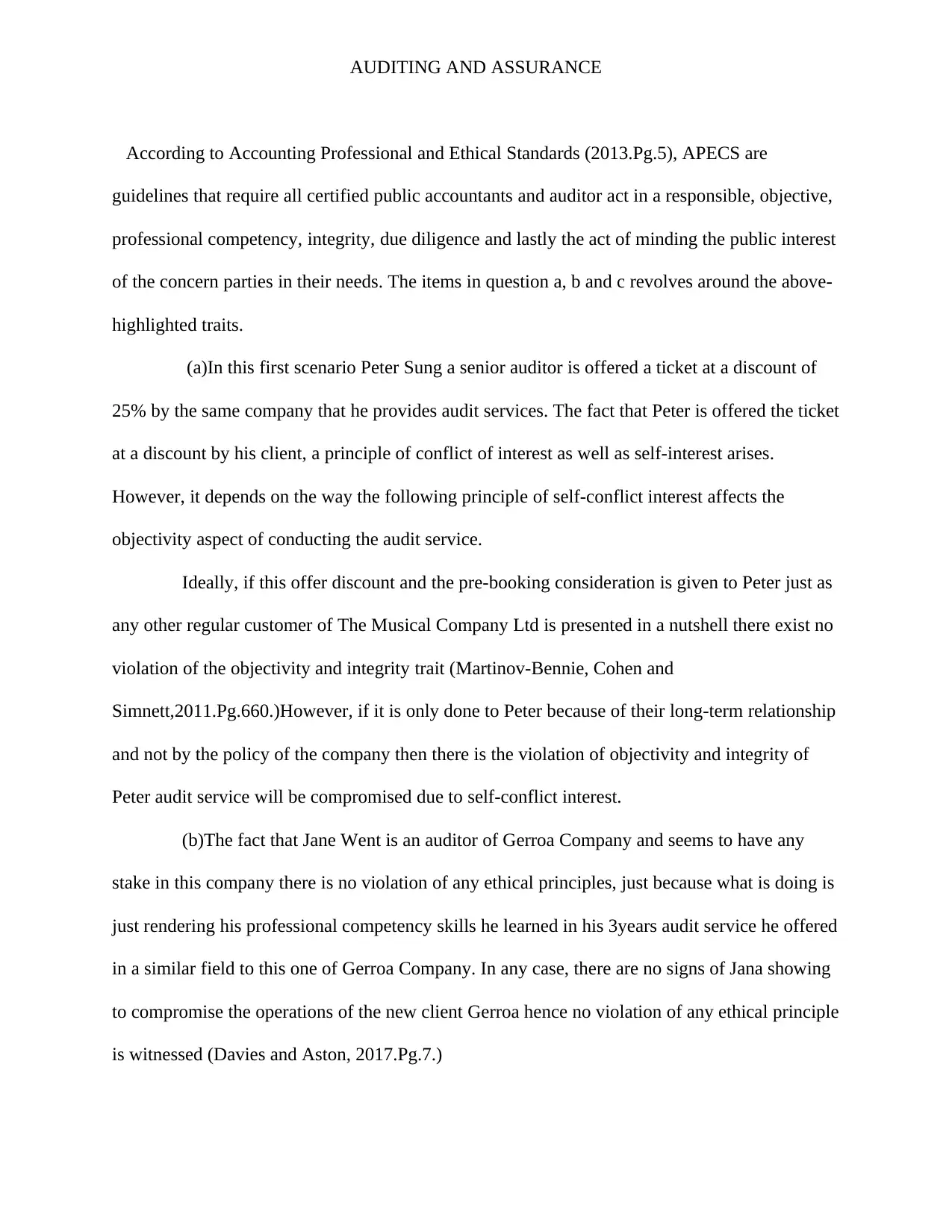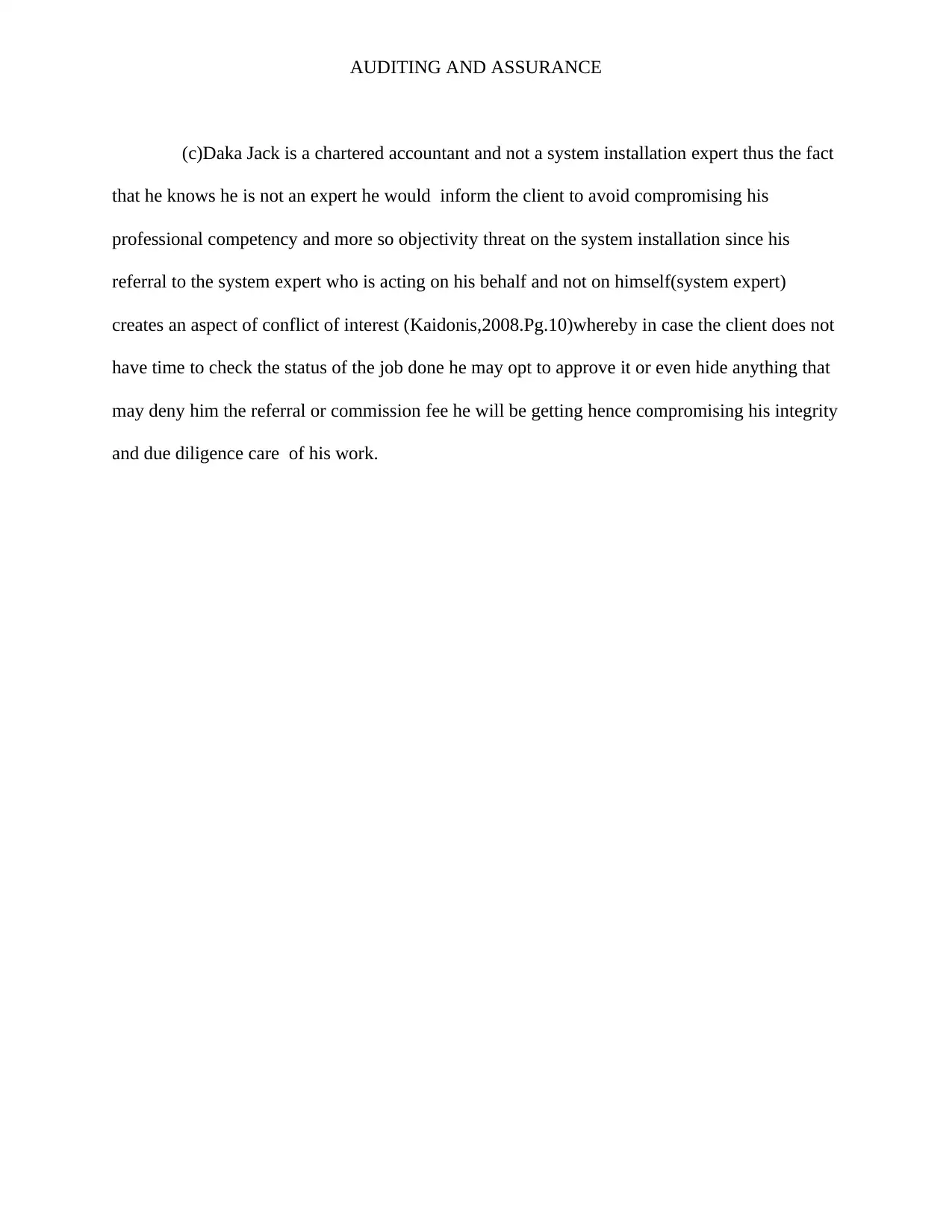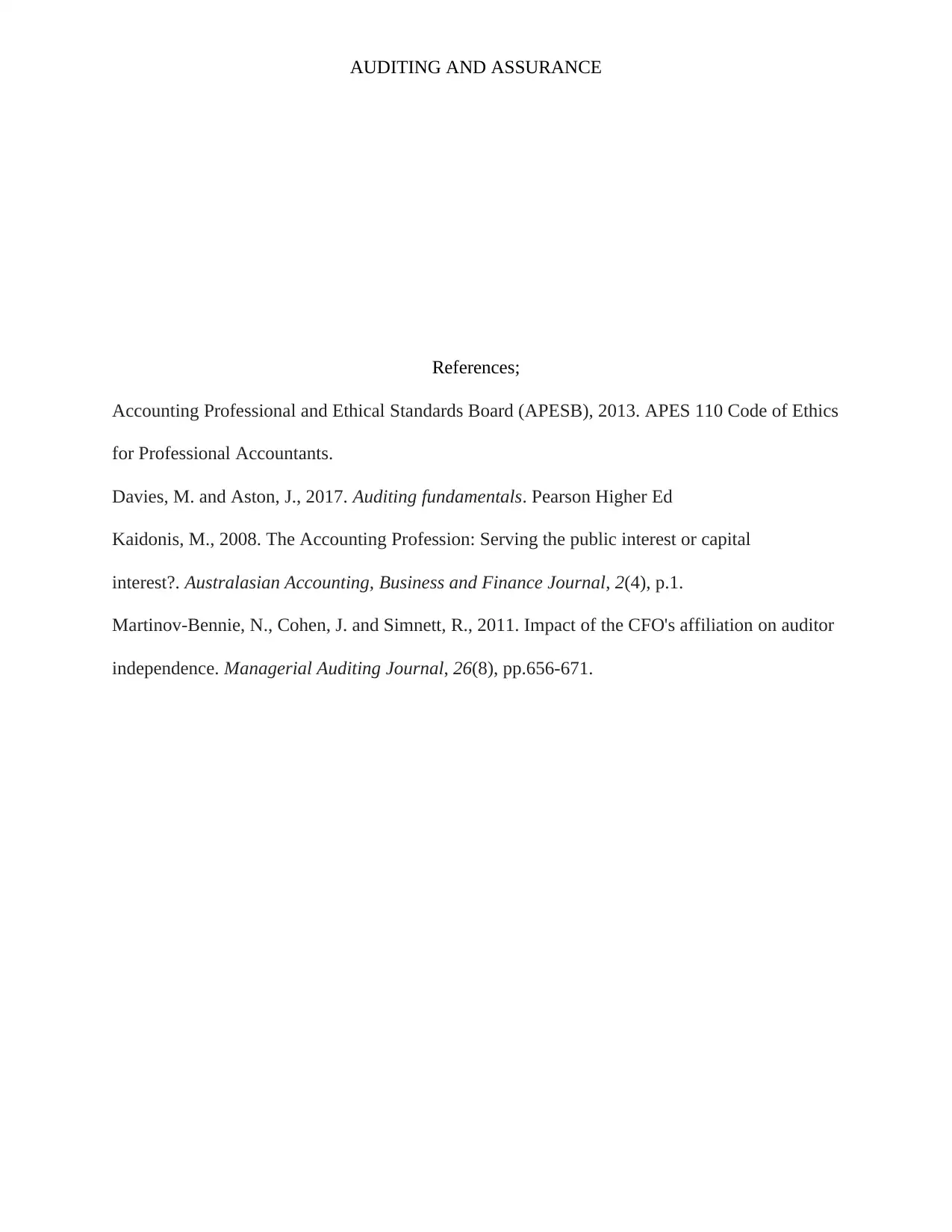ACC300 Auditing and Assurance Services: Ethical Violations Analysis
VerifiedAdded on 2023/06/04
|4
|603
|177
Homework Assignment
AI Summary
This assignment solution delves into the ethical principles of auditing and assurance, referencing Accounting Professional and Ethical Standards (APES) to evaluate potential violations. It analyzes three scenarios involving a senior auditor receiving discounted tickets, an auditor with prior experience in a similar company, and a chartered accountant recommending a system installation expert. The analysis identifies potential conflicts of interest, threats to objectivity, and compromises to professional competency and due diligence. By examining each situation against the backdrop of ethical guidelines, the assignment provides insights into maintaining integrity and public interest in auditing practices. Desklib provides a wide array of study tools and solved assignments for students.
1 out of 4









![[object Object]](/_next/static/media/star-bottom.7253800d.svg)